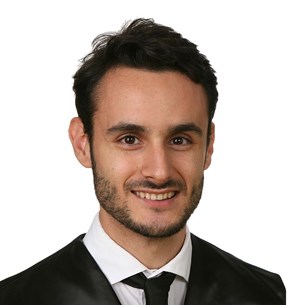Meeting
2022 ASCO Annual Meeting

Department of Medical Oncology. Cruces University Hospital, Barakaldo, Spain
Pablo Jiménez Labaig , Domingo Antonio Sánchez , Andrea Sesma , Alicia Quilez , Vilma Pacheco Barcia , Berta Obispo , David Paez , Maria Teresa Quintanar , Manuel Sánchez-Cánovas , Noelia Tarazona , Ana Fernandez Montes , Enriqueta Felip , Alvaro Rodriguez-Lescure , Elena Elez
Background: A long-term planning of the oncologists’ career path is essential to approach the continuous changes in the oncology field given the need of further subspecialization after the training period. Our aim is to evaluate the current professional development of young medical oncologists in Spain and seek improvement strategies to enhance their careers in order to guarantee commitment with research and improve in patient care and outcomes. Methods: The SEOM +MIR Section launched a national online survey in May 2021 aimed at young medical oncology consultants (<6 years of experience) and last year medical oncology residents. Spanish professionals were invited to participate via email through the SEOM database. A descriptive analysis was performed using R software v4.1.2. Results: A total of 162 responses were eligible. 103 (64%) were women. 129 (80%) were consultants and 33 (20%) were residents. 92 (68%) performed standard clinical care and 11 (7%) research activity. 118 (73%) were subspecialized in a main area of interest and almost half of them, 70 (59%), chose it because it was the only option available after finishing residency. 87 (54%) had considered different employment opportunities other than standard clinical care and 38 (23%) showed an interest in enhancing their research activity. 141 (87%) showed relevant concern about their employment stability (table attached). 82 (51%) had considered working abroad: 33 (44%) outside European Union. The main reasons were: 132 (81%) believed the professional standing in Spain was worse than other countries, 41 (25%) thought it might increase their professional development and 33 (20%) argued for better salary conditions abroad. Among them, 21 (13%) had signed at least 4 contracts and 66 (41%) had ≥5 employment contracts in the last 5 years. 27% of respondents indicated that the figure of the boss had been the most contributing professional in their professional career. The mentor (20%) and the tutor (18%) also stand out as relevant figures in terms of professional development. Up to 27% of the sample refers not to have obtained any help from the figures mentioned. Conclusions: An absence of engagement in the long-term career paths of young medical oncologists in Spain was observed. Research is not defined in the current early professional life. Furthermore, there is a lack of contractual quality and planning for the entry into the labour market of newly trained oncologists. The lack of such a career pathway has consequences that encourage the search for employment opportunities different from clinical care and in other countries.
| Level of concern of job stability | N | Percentage (%) |
|---|---|---|
| 1 | 7 | 4.32% |
| 2 | 2 | 1.23% |
| 3 | 6 | 3.70% |
| 4 | 6 | 3.70% |
| 5 | 12 | 7.41% |
| 6 | 6 | 3.70% |
| 7 | 17 | 10.49% |
| 8 | 21 | 12.96% |
| 9 | 23 | 14.20% |
| 10 | 62 | 38.27% |
| Total: | 162 | 100.00% |
Disclaimer
This material on this page is ©2024 American Society of Clinical Oncology, all rights reserved. Licensing available upon request. For more information, please contact licensing@asco.org
2022 ASCO Annual Meeting
Poster Session
Professional Development and Education Advances
Medical Education and Professional Development
Education Research
J Clin Oncol 40, 2022 (suppl 16; abstr 11038)
10.1200/JCO.2022.40.16_suppl.11038
11038
229
Abstract Disclosures
2023 ASCO Quality Care Symposium
First Author: Niharika Dixit
2022 ASCO Annual Meeting
First Author: Maria De Lourdes Garcia-Jimenez
2024 ASCO Quality Care Symposium
First Author: Nancy Thompson
2021 ASCO Annual Meeting
First Author: Haydee Cristina Verduzco-Aguirre